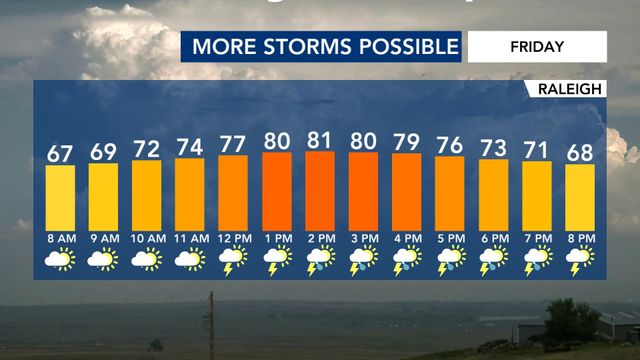FAQ: What you need to know about the 2023 COVID vaccine, flu & RSV vaccines
The Food and Drug Administration has approved two new COVID-19 vaccines from Moderna and Pfizer/BioNTech for distribution. The Centers for Disease Control (CDC) and Prevention recommends the new vaccines for all people 6 months and older.
Here are some answers to your frequently asked questions about the new COVID vaccines.
Where can I get the new vaccines?
Visit Vaccines.gov and enter your ZIP code to find a vaccine near you.
Most health providers and pharmacies will offer the vaccine as early as Sept. 13. Walgreens and CVS will have vaccines available to those who are eligible.
Call your physician or local pharmacy to see when they'll have the new vaccines available.
Make an appointment for a vaccine in Wake County
Wake County Public Health has vaccination locations throughout the county open five days a week. The county anticipated offering the vaccine beginning the week of Sept. 18. All clinics will administer the Moderna COVID-19 vaccine.
Appointments are required. You can make an appointment by calling 919-250-1500 Monday through Friday, 8:30 a.m. to 4:30 p.m.
Wake County vaccine locations:
- Wake County Health and Human Services Center, 5809 Departure Drive, Raleigh
- Wake County Public Health Center, 10 Sunnybrook Road, Raleigh
- Northern Regional Center, 350 E. Holding Ave., Wake Forest
- Southern Regional Center, 130 N. Judd Parkway NE, Fuquay-Varina
Do I have to pay for the new vaccine?
If you're insured, no.
This vaccine roll out will be different than others. Due to the public health emergency ending, vaccines won't be automatically covered.
Children covered by Medicaid and underinsured children will be able to receive the vaccine free of charge through the Vaccines For Children Program.
Pennington said the state will receive a limited supply of free vaccines for uninsured adults.
"We are currently awaiting more information from our federal partners, but we do expect that a supply of free vaccines for uninsured adults will be available through the Bridge Program," Pennington said. "We will ensure it goes to our safety net providers that care for our uninsured populations – community health centers and local health departments."
What makes these vaccines different than previous ones?
Updated COVID-19 vaccines use the same formulation as the original COVID-19 vaccines, according to the CDC.
"The updated vaccines are called 'updated' because they protect against both the original virus that causes COVID-19 and the Omicron variant BA.4 and BA.5," the CDC said on its website. "Two COVID-19 vaccine manufacturers, Pfizer-BioNTech and Moderna, have developed updated COVID-19 vaccines."
Should I get the flu and COVID vaccines at the same time?
People 6 months and older are also encouraged to get an updated flu vaccine when they receive their COVID-19 shot. The flu vaccine should be received by early October.
An RSV vaccine is recommended for adults 60 and older to protect against respiratory syncytial virus.
All three of these shots can be safely received at the same time. Here's more information.
How long do I have to wait to get new COVID vaccine if I was recently vaccinated?
According to the CDC, people should adhere to the following guidelines:
- People aged 65 years and older may get a second dose of updated Pfizer BioNTech or Moderna COVID-19 vaccine four or more months after the first updated COVID-19 vaccine.
- People who are moderately or severely immunocompromised may get additional doses of updated Pfizer BioNTech or Moderna COVID-19 vaccine two or more months after their previous vaccination.












